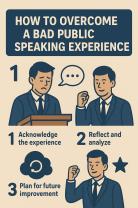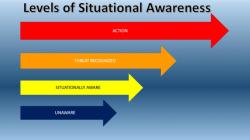What are examples of negative attitudes?
Negative attitudes can manifest in various situations, affecting personal and professional interactions. Here are some examples of negative attitudes in different scenarios:
Workplace Negativity:
- Constantly complaining about work conditions without offering constructive feedback.
- Refusing to collaborate with colleagues and being uncooperative in team projects.
- Expressing pessimism about the success of a project or the company's future.
Customer Service:
- Providing service with a lack of enthusiasm or interest in helping customers.
- Displaying impatience or frustration when dealing with customer inquiries or complaints.
- Conveying indifference towards customer needs or concerns.
Relationships:
- Engaging in constant criticism or nagging without acknowledging positive aspects.
- Holding grudges and being unwilling to forgive or move past conflicts.
- Displaying a lack of empathy or support during difficult times.
Educational Settings:
- Resisting feedback from teachers and refusing to make improvements.
- Undermining the efforts of classmates or teachers through negative comments.
- Avoiding participation and showing disinterest in the learning process.
Social Settings:
- Being overly sarcastic or mocking in social interactions.
- Engaging in gossip and spreading negative rumors about others.
- Displaying a dismissive attitude towards others' opinions or experiences.
Leadership:
- Blaming team members for failures without taking any responsibility.
- Using intimidation or hostility as a leadership style.
- Ignoring or dismissing the input and ideas of team members.
Personal Development:
- Resisting change and being unwilling to adapt to new circumstances.
- Focusing on past mistakes without a commitment to learning and growth.
- Belittling one's own abilities and constantly expressing self-doubt.
Identifying and addressing these negative attitudes is crucial for personal and interpersonal growth. Encouraging a positive mindset and open communication can contribute to healthier relationships and more productive environments.
Identifying Negative Attitudes: A Comprehensive Overview
What are negative attitudes?Negative attitudes are mental dispositions characterized by pessimism, criticism, and a lack of openness to possibilities. They can manifest in thoughts, feelings, and behaviors, impacting our individual well-being and relationships.
Key aspects of negative attitudes:
- Focus on the negative: Negativity emphasizes flaws, challenges, and potential downsides, often overshadowing positive aspects.
- Resistance to change: Negative attitudes make individuals hesitant to embrace new ideas or adapt to new situations.
- Limited perspective: Negativity restricts how we interpret experiences, often leading to distorted or narrow-minded viewpoints.
- Emotional response: Negative attitudes are often accompanied by emotions like frustration, anger, or cynicism, which can cloud judgment and hinder effective communication.
Common Examples of Negative Attitudes in Various Situations:
Personal Life:
- Pessimism: Always expecting the worst, viewing challenges as insurmountable, and doubting future success.
- Chronic complaining: Constantly pointing out problems without actively seeking solutions or taking responsibility.
- Cynicism: Mocking or belittling others' optimism and positive efforts, dismissing them as unrealistic or naive.
- Defensiveness: Reacting with anger or blame when challenged or criticized, refusing to acknowledge personal flaws.
- Victim mentality: Feeling helpless and unfairly treated, attributing personal failings to external factors beyond control.
Professional Life:
- Apathy and negativity: Showing disinterest in work, lacking enthusiasm or motivation to contribute.
- Destructive criticism: Offering feedback solely to point out flaws without constructive suggestions or encouragement.
- Gossip and negativity: Spreading rumors or complaints about colleagues, creating a distrustful and unproductive environment.
- Resistance to change: Refusing to adapt to new procedures or technologies, hindering progress and innovation.
- Entitlement and dishonesty: Demanding special treatment or taking shortcuts, potentially engaging in unethical behavior.
Romantic Relationships:
- Constant negativity: Focusing on partner's flaws, criticizing actions, and highlighting relationship problems.
- Emotional withdrawal: Shutting down communication, avoiding intimacy, and withdrawing affection as a form of punishment.
- Jealousy and possessiveness: Constantly monitoring partner's activities, doubting their loyalty, and controlling their interactions.
- Self-centeredness and lack of empathy: Prioritizing own needs and desires, failing to consider partner's feelings or perspectives.
- Passive-aggressiveness: Indirectly expressing anger or resentment through subtle actions, avoiding direct confrontation.
Recognizing and Addressing Negative Mindsets in Personal and Professional Life:
Self-awareness is key:
- Observe your thoughts and feelings: Track your reactions to different situations and identify underlying negativity.
- Challenge negative patterns: Question the validity of pessimism and assumptions that fuel negativity.
- Acknowledge the impact: Consider how your negativity affects your relationships, performance, and overall well-being.
Strategies for addressing negativity:
- Reframe thoughts: Practice reframing negative thoughts into more optimistic or neutral perspectives.
- Focus on gratitude: Reflect on positive aspects of your life and express appreciation for the good things you have.
- Develop coping mechanisms: Find healthy ways to manage stress and negative emotions (exercise, meditation, journaling).
- Seek support: Talk to a therapist or counselor for guidance in managing negativity and developing positive coping mechanisms.
Remember, changing negative attitudes requires effort and persistence. Be patient with yourself, celebrate small victories, and commit to continuous growth for a more fulfilling and positive life.
I hope this comprehensive overview helps you identify and address negative attitudes in your own life and the lives of those around you.











